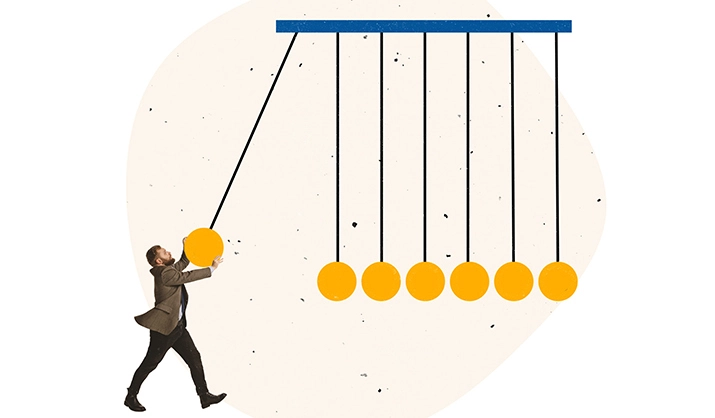Our recent webinar, How JPMorgan Chase Created a World Class Insights Team, featured Mamta Gupta, Executive Director, Head of Global Strategic Intelligence at JPMorgan Chase. She was joined by Radius team members, Jon Weeks, and Bari Weinhausen (who served as moderator) for an engaging conversation about Mamta’s approach to building research teams. Here are some of our key takeaways from the webinar. Read the highlights or watch the webinar replay now or keep reading for conversation highlights.
A mix of skills and abilities leads to insights that foster strong brand growth.
Mamta’s team operates on a broad spectrum of market research activities, covering tracking and benchmarking studies, specific audience research for new product development, and qualitative research that includes different methodologies. She describes her team as a global, diverse, and driven group with excellent business understanding, strong analytical and project management skills, and an eagerness to grow and adapt.
Ownership and cross-training within the team are encouraged, ensuring that each member has a chance to lead and support different types of initiatives. The team’s commitment to quality and communication, and its dedication to delivering results, strengthens its contribution to the business.
Qualities that help candidates get a spot on the team stretch beyond data analytics skills.
For Mamta, big company experience and a background in B2B research are key factors when evaluating potential team members, but equally important is a sense of curiosity—a fundamental ‘researcher’ attribute that drives team members to ask questions and explore data deeply. She underscores the importance of connecting the dots, detail orientation, and having an analytical mindset.
Team members must be able to build compelling narratives – and be intentional storytellers – around data and insights that align the solutions with business goals. She looks for an executive presence, emotional intelligence, and the ability to share relevant knowledge in a concise manner. A core expectation is the team’s capacity to translate data into actionable insights, ensuring stakeholders are equipped to act effectively.
One strategy that helps Mamta assess a candidate’s range of skills is the introduction of a case study during interviews to observe the candidate’s thought processes and problem-solving approach.
A core expectation is the team’s capacity to translate data into actionable insights, ensuring stakeholders are equipped to act effectively.”
Balancing stakeholder needs and providing actionable insights.
Mamta discussed the strategies and skills that underpin the successful alignment of insights with organizational goals, which begins with understanding your stakeholders’ organizations thoroughly.
The ability to actively listen, ask probing questions, and extract valuable information from stakeholders is critical. To ensure alignment, her team has developed an engagement form that outlines key questions to guide stakeholders and foster better communication. Additionally, a vision deck is created to present the research’s objective, responsibility, timeline, and cost, creating a shared understanding of the project’s scope.
Match information delivery to the reader’s preferred communication style.
Mamta highlights the importance of tailoring the delivery of insights to suit the client’s style of consumption. Whether stakeholders prefer high-level summaries or in-depth analysis, insights teams must cater to their specific preferences. This entails striking a balance between providing comprehensive information and presenting it in a way that is easy to understand and act upon.
Cultivating an independent voice brings additional value to the insights.
An asset to any team is the ability to develop an independent voice. The primary role of an insights team is to represent the client’s audience accurately. In this role, insights professionals need to deliver findings that may challenge clients’ established beliefs or assumptions. Having the confidence to express a different point of view is essential.
Research partners bring valuable perspective.
Research partners play an important role in Mamta’s overall strategy. She looks for experienced, established firms that are comfortable working with stakeholders in a global business like hers. The most valuable partners bring fresh ideas, a willingness to take the time to learn about the business’s overall goals along with the nuances of the internal research team. Partners that provide a personal point of contact dedicated to the team often become an extension of the internal research team, enhancing the quality of deliverables. These close partnerships help the team meet timelines, and lead to long-term engagements where the teams grow together, developing flexibility and agility along the way.
Defining Success: It’s in the Activation
Research partners play a key role in helping teams build action plans. Asking critical questions such as:
- Is the information being used?
- Are there requests for more insights?
- Do stakeholders need to understand the impact of insights?
The value of an ongoing partnership extends beyond the research deliverables to ensure the insights become strong and measurable action plans. For example, in our work with client teams like Mamta’s, we’ll host Looking Glass™ workshops, and host sessions with teams throughout the organization to ensure the insights are integrated into planning. To ensure teams are on track, we’ll work with them to establish measurement and tracking goals and schedule follow-up touchpoints to ensure the plans are on track.
Want to learn more about our approach to partnering with global research teams?





